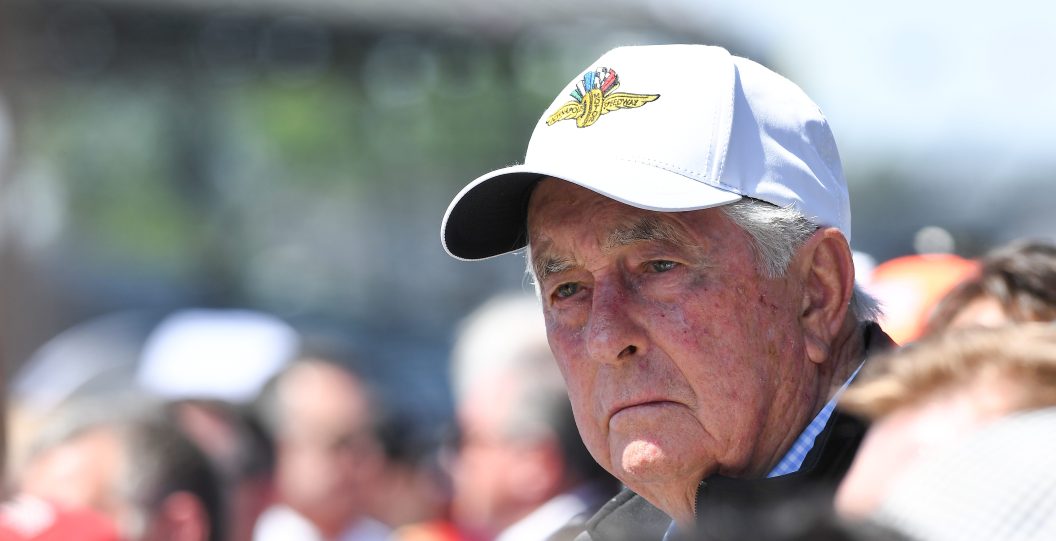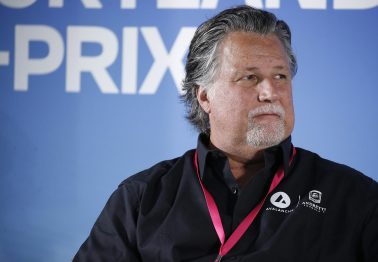While Josef Newgarden cruised to a comfortable victory in Sunday's season-opening Firestone Grand Prix of St. Petersburg, his team owner, Roger Penske, experienced a rockier debut to the 2024 NTT IndyCar season. Andretti Global team owner Michael Andretti urged Penske to drastically increase investment in the series he owns or sell it.
When Penske bought the Indianapolis Motor Speedway and the IndyCar Series from the Hulman-George family in November 2019, there was a very real sense of excitement and optimism for the sport's future. After all, Penske is a billionaire entrepreneur and IndyCar's most successful team owner in history. No one better than Penske could understand the needs of the sport and its teams, and possess the business savvy to conjure up creative and effective fixes to IndyCar's problems through his company, Penske Entertainment.
At the time, no one could have guessed that the COVID-19 pandemic was coming and that the 2020 Indy 500 would race in front of an empty house — or that the 2021 Indy 500 attendance would be restricted to 40 percent of capacity, cutting deep swaths into the sport's big money-making event. Nor could they have imagined the tumultuous offseason IndyCar has experienced since the checkered flag fell on the 2023 season that saw a variety of issues pop up, including the postponement of a standalone IndyCar video game; a delay in the introduction of IndyCar's new hybrid engine technology; the departure of Texas Motor Speedway from the schedule; the switch of the season-ending race on the streets of downtown Nashville to Nashville Superspeedway due to construction of the Tennessee Titans' new stadium; longtime engine partner Honda threatening to leave the series; and difficult negotiations between IndyCar and its team owners over an initial charter system.
The charter negotiations in particular drew Andretti's scorn over the St. Pete race weekend. IndyCar has reportedly asked every team owner to pitch in $1 million to "purchase" a charter that would guarantee them entry into every race and energize the prize money pool. IndyCar would also invest a percentage of that money back into the sport. IndyCar's proposal was shot down by the team owners.
"It was comical," Andretti said. "First of all, $20 million isn't going to do anything. You've got to have five times that number — at least. And it's like, 'Don't take our money, Roger. You bought the series. We don't own the series.'"
If Penske is unwilling to make the investment needed to ramp up IndyCar's on-track and off-track reputation to levels enjoyed by NASCAR and Formula 1, Andretti suggested that Penske should sell the series.
"There's people out there willing to [buy] it," Andretti continued. "I think there's a lot of people on the sidelines thinking, 'This is a diamond in the rough if you do it right.' But what you need is big money behind it to get it to that level; and if he's not willing to do it, I think he should step aside and let someone else buy it.
"I told him, 'Why don't you sell part of the series to somebody to use that money, as an equity stake. You still keep that control, but take that money and invest it.' But he doesn't want any partners."
While IndyCar team owners express concerns and frustration over the sport's future, IndyCar itself points to strong signs of the series' growth over the last several years.
"We have substantial resources, and what we're trying to continue to do is build on the growth and avoid fads that may create spikes in growth that aren't sustainable," said Penske Entertainment President and CEO Mark Miles. "We're readily talking to other media platforms, studios, production houses, agencies and others, looking for ideas and potential partners — by which I don't mean selling equity — but I don't have any doubt that when we come up with big ideas that have real potential and meet the criteria I'm talking about, that those investments are available."
To further bolster IndyCar's position, the crowds at St. Petersburg reportedly flocked to the street circuit in record numbers, with the sale of IndyCar merchandise similarly on record pace. It will be interesting to see if the NBC broadcast of the race will also show improvement when those numbers are released.
While IndyCar is undoubtedly experiencing a rise in popularity, it still lags laps behind NASCAR and Formula 1 in perception, despite arguably having more competitive races and the allure of racing on superspeedways, short ovals, natural terrain road courses and street circuits. And while an uptick in popularity is a good thing, of course, is it enough to sustain the sport in the long run?
"We need a big influx of cash in order to go out and do what these other series do to make them worth all that money. It does seem like if we can give Roger things that make sense, he'd be open to do them," Andretti concluded. "We still do have the best series in the world that no one knows about, and we just need to get it out there for people to know what it's about. I think Roger has to decide where he wants to go. Does he want to make this an elite series, a world series that you can put in front of the world? Or do you want to keep it at the level that it is?"
More: Future of IndyCar In Question After Honda Threatens To Leave Sport

